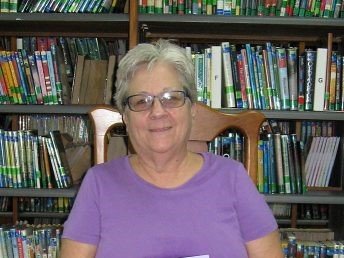An imperfect art

DEBBIE JACOB
BOOKS HAVE sustained me through the vicissitudes of life: the lonely years as a child on a remote dairy farm in rural Ohio far away from people and the exhilarating years of adulthood with the unimaginable freedom of expression that journalism has provided. Books help me to process pain, anger, joy and frustration. They often serve as a platform for self-discovery.
So, when I left Port of Spain to do research for a book in Nashville once again and ended up in writer Ann Patchett’s Parnassus Books in Nashville, Tennessee, I hoped to find yet another special book. I didn’t expect to find Southern Writers on Writing, edited by Susan Cushman, a book that would help me discover why I have found it difficult to share one of the highlights of my life: the book launch for Making Waves: How the West Indies Shaped the US at the Port of Spain Prison.
Fumbling for words that I felt certain I should be able to conjure up, I became frustrated and sad while trying to write that column. I could not capture that profound event in my life so Cushman’s book became a welcome diversion. I laughed aloud – when I read the first paragraph of Cushman’s introduction:
“In his book a Lowcountry Heart: Reflections on a Writing Life (published posthumously), the author Pan Conroy says: ‘My mother, Southern to the bone, once told me, ‘All Southern literature can be summed up in these words: On the night the hogs ate Willie, Mama died when she heard what Daddy did to sister.’’”
Then I discovered an essay that perfectly explained my frustration as a writer. Near the end of Jim Dees’ essay, “Off the Deep End,” he wrote, “My recent book, The Statue and the Fury, is a true story that I had saved up for twenty years. The book covers a year in Oxford (Mississippi) when I was a green-as-grass reporter, and a statue of William Faulkner set off a year-long controversy involving trees, versus development, and eventually the Rebel flag and racial altercations.”
Dees said he stored the boxes of interviews and research in his garage because he felt sure it would make a “cool book ... And then I started writing it. It was great until the second sentence. I knew the story, even knew how I wanted to lay it out and in what order. But once I started writing it, a deadly realization seeped into my being.”
That realisation plagues all writers. It’s the feeling that we are not really writers because we are not magicians who can conjure up the perfect words necessary to convey a feeling.
Deeper into the essay, Dees speaks of discovering an interview in the Oxford American in the fall of 2001 from Barry Hannah who spoke about opening the pages of every book he had written and feeling that they “were about fifteen degrees below what he had intended to write …”
And then Hannah gave advice about writing that I took to heart: “You’ve just got to get over the fact what you write is going to be imperfect... It’s not going to be quite what you wanted.”
That advice freed me up to tackle that book-launch column. It’s not going to be perfect. It can never completely convey what that event meant to me, but communication is an imperfect art. The more personally connected we are to an event, the more difficult it is to write about.
As Dees wrote, “It takes insane courage to assemble your thoughts and true deep matters of your heart and present them to a world of … strangers.”
If I could have read this book – especially this essay – 35 years ago, I would have understood my life better. I would have been spared the many anxious moments when I felt inadequate as a writer. I would have realised that I spend so much time in prison with angry young men in this country because they too struggle with finding the words to express their feelings.
Communication is an imperfect art. When we come close to what we really want to say, it is the most freeing and most exhilarating feeling in the world, but when we can’t conjure up the words, we feel inadequate. All we can do is confront that challenge.
Next week I present my column on the book launch of Making Waves with all its imperfections, confident now that I got as close as I could to conveying that momentous occasion.


Comments
"An imperfect art"